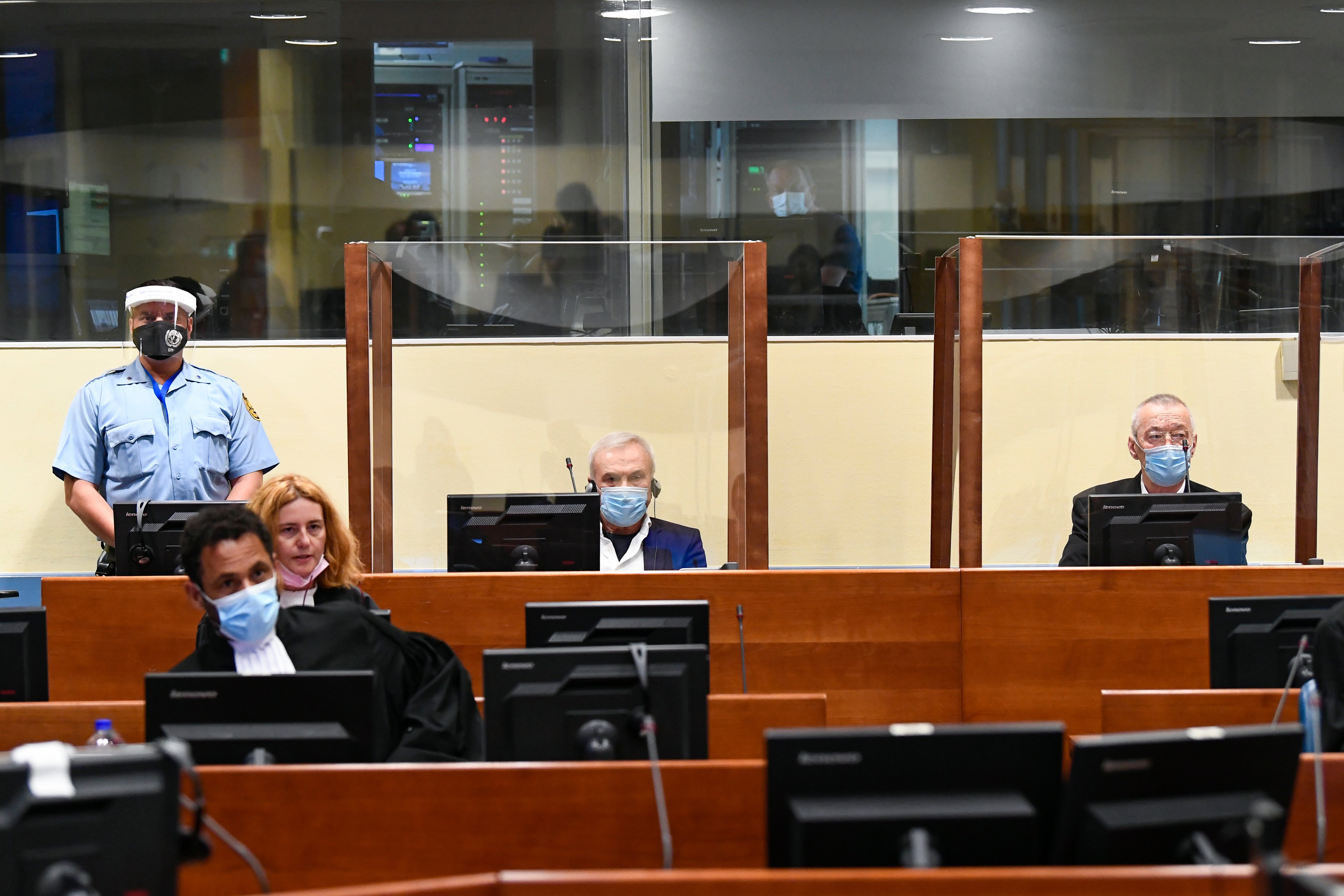UN war crimes court convicts 2 Serbs over Bosnia atrocities
A United Nations court has convicted two former allies of late Serbian President Slobodan Milosevic of aiding and abetting crimes committed by Serb paramilitaries in a Bosnian town in 1992

Your support helps us to tell the story
From reproductive rights to climate change to Big Tech, The Independent is on the ground when the story is developing. Whether it's investigating the financials of Elon Musk's pro-Trump PAC or producing our latest documentary, 'The A Word', which shines a light on the American women fighting for reproductive rights, we know how important it is to parse out the facts from the messaging.
At such a critical moment in US history, we need reporters on the ground. Your donation allows us to keep sending journalists to speak to both sides of the story.
The Independent is trusted by Americans across the entire political spectrum. And unlike many other quality news outlets, we choose not to lock Americans out of our reporting and analysis with paywalls. We believe quality journalism should be available to everyone, paid for by those who can afford it.
Your support makes all the difference.A United Nations court on Wednesday convicted two former allies of late Serbian President Slobodan Milosevic of aiding and abetting crimes committed by Serb paramilitaries in a Bosnian town in 1992.
It is the first time that Serbian officials have been convicted by a U.N. court of involvement in crimes in Bosnia.
However, the court said there was not sufficient evidence to convict them of similar crimes committed in other towns and villages in Bosnia and Croatia as the former Yugoslavia violently disintegrated in the early 1990s.
Jovica Stanisic and Franko Simatovic were convicted of aiding and abetting the crimes of murder, deportation, forcible transfer and persecution in the town of Bosanski Samac, and each was sentenced to 12 years' imprisonment. The judgment can be appealed.
Stanisic is a former head of Serbia’s State Security Service, and Simatovic was a senior intelligence operative with the service.
“The trial chamber is satisfied that the accused provided practical assistance which had a substantial effect on the commission of the crimes of murder, forcible displacement and persecution committed in Bosanski Samac and were aware that their acts assisted in their commission,” Presiding Judge Burton Hall said.
Stanisic and Simatovic were originally acquitted in 2013 by judges who said prosecutors had failed to prove important elements of their links to the crimes. Appeals judges quashed the not-guilty verdicts in 2015 and ordered the retrial that took place at the U.N. International Residual Mechanism for Criminal Tribunals.
The verdicts Wednesday are the final U.N. prosecution in The Hague for crimes committed during the bloody breakup of Yugoslavia.
Earlier this month, appeals judges at the same court confirmed former Bosnian Serb military chief Ratko Mladic s convictions for his role in atrocities throughout the Bosnian war, and upheld his life sentence.
Iva Vukusic, a historian at Utrecht University, said the prosecution of Stanisic and Simatovic, who were originally sent to The Hague to face trial in 2003, has taken too long.
“I think this case is really showing us that if international justice wants to be a viable solution, this is not the way to run it," she said in a telephone interview. "It’s been too long in the making.”
Even so, it offered an opportunity to pass the first judgment at an international court on Serbia's role in the wars.
Milosevic was charged in a broader indictment with fomenting crimes in the Balkan wars but he died in his cell in The Hague in 2006 before judges could deliver verdicts.
Vukusic said that in the history of the U.N. war crimes tribunal for the former Yugoslavia in The Hague there has been no conviction of any Serbian official for crimes in Croatia and Bosnia.
“That, many scholars would agree, is really unusual and doesn’t reflect the realities of the conflict,” she said. "It almost seems as if, judging by the legal conclusions, Serbia had nothing to do with the war in Croatia and Bosnia and that it was all the local Serbs. While in fact the local Serbs wouldn’t be able to fight a war for a week had it not been for Serbian support.”